



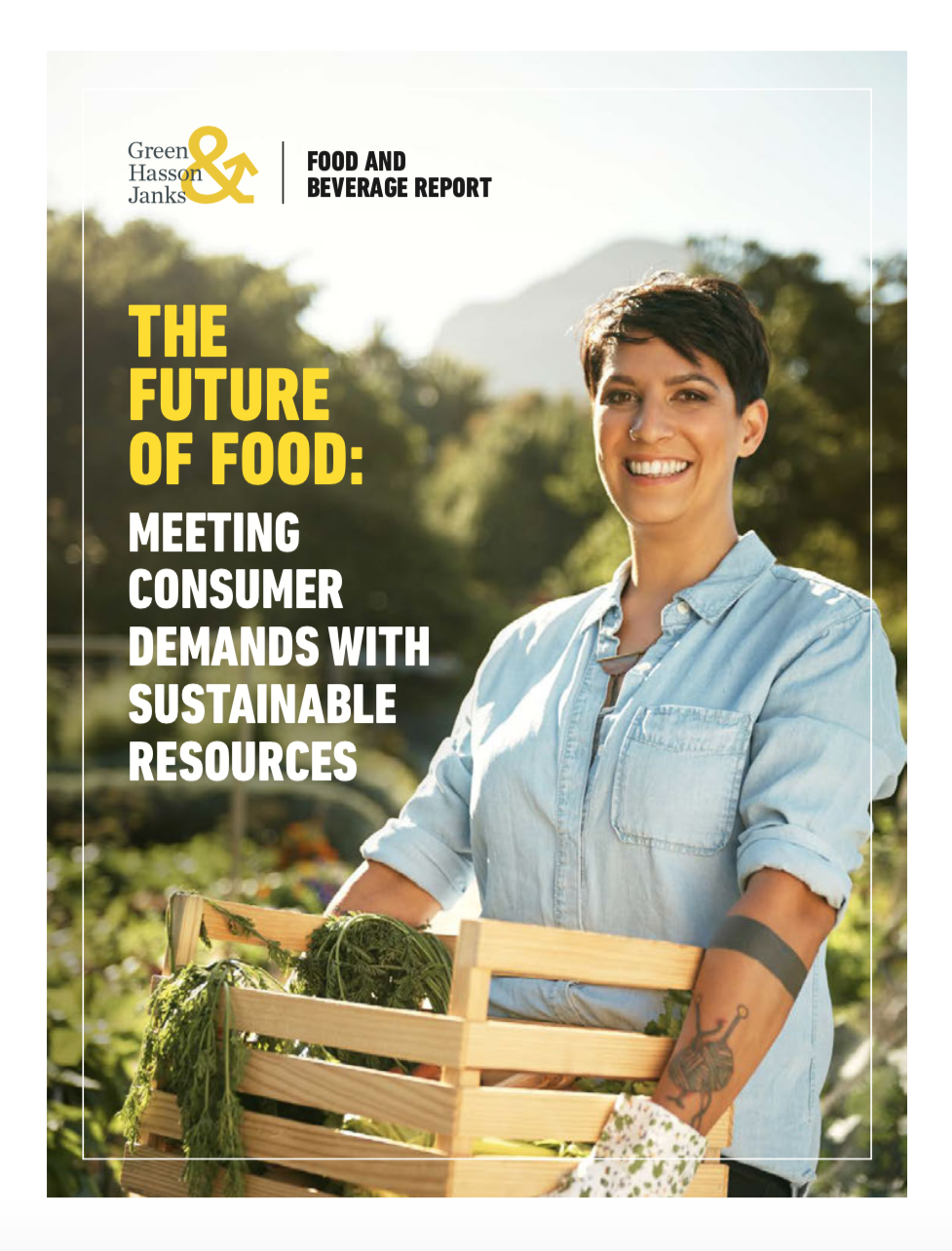
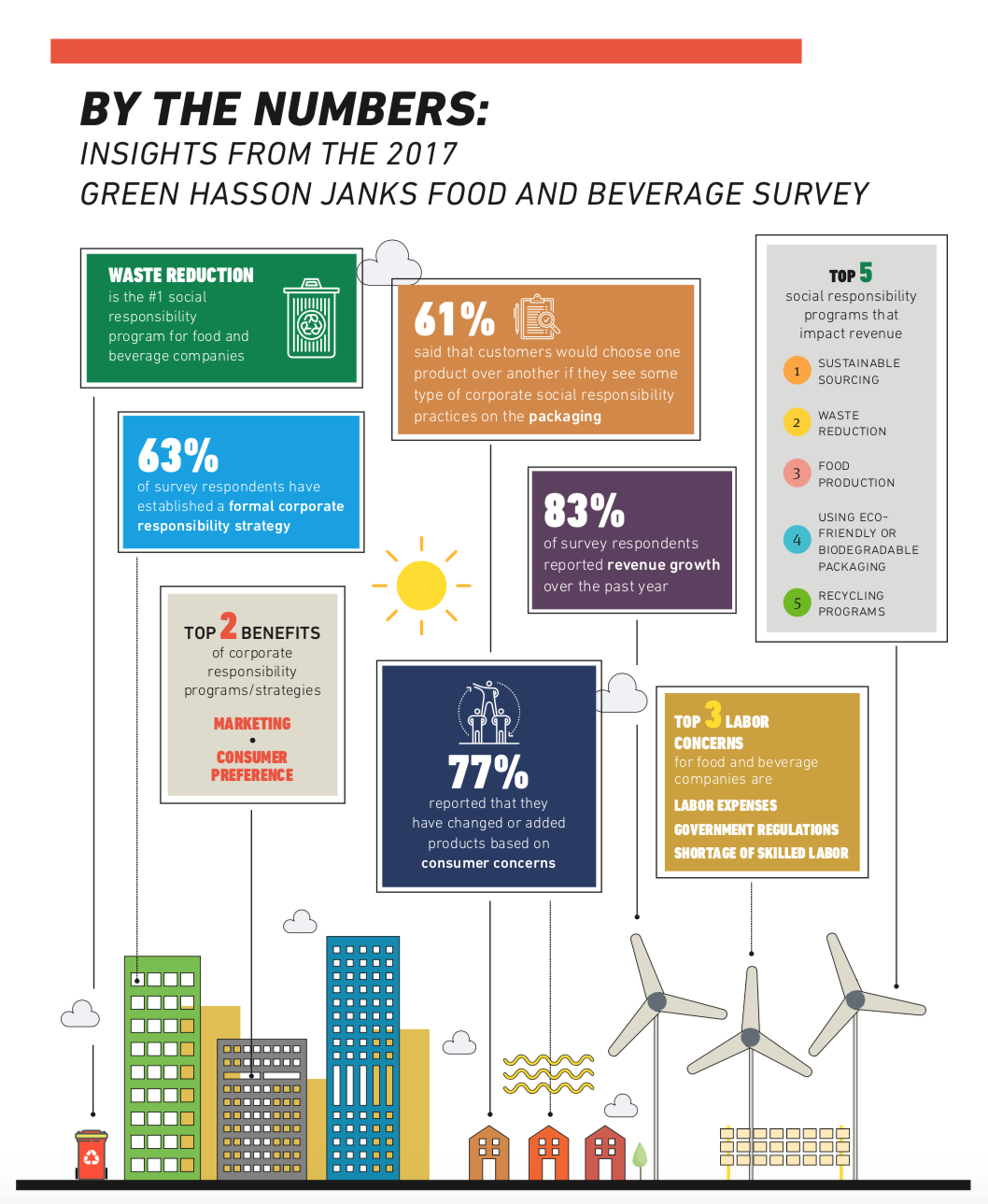
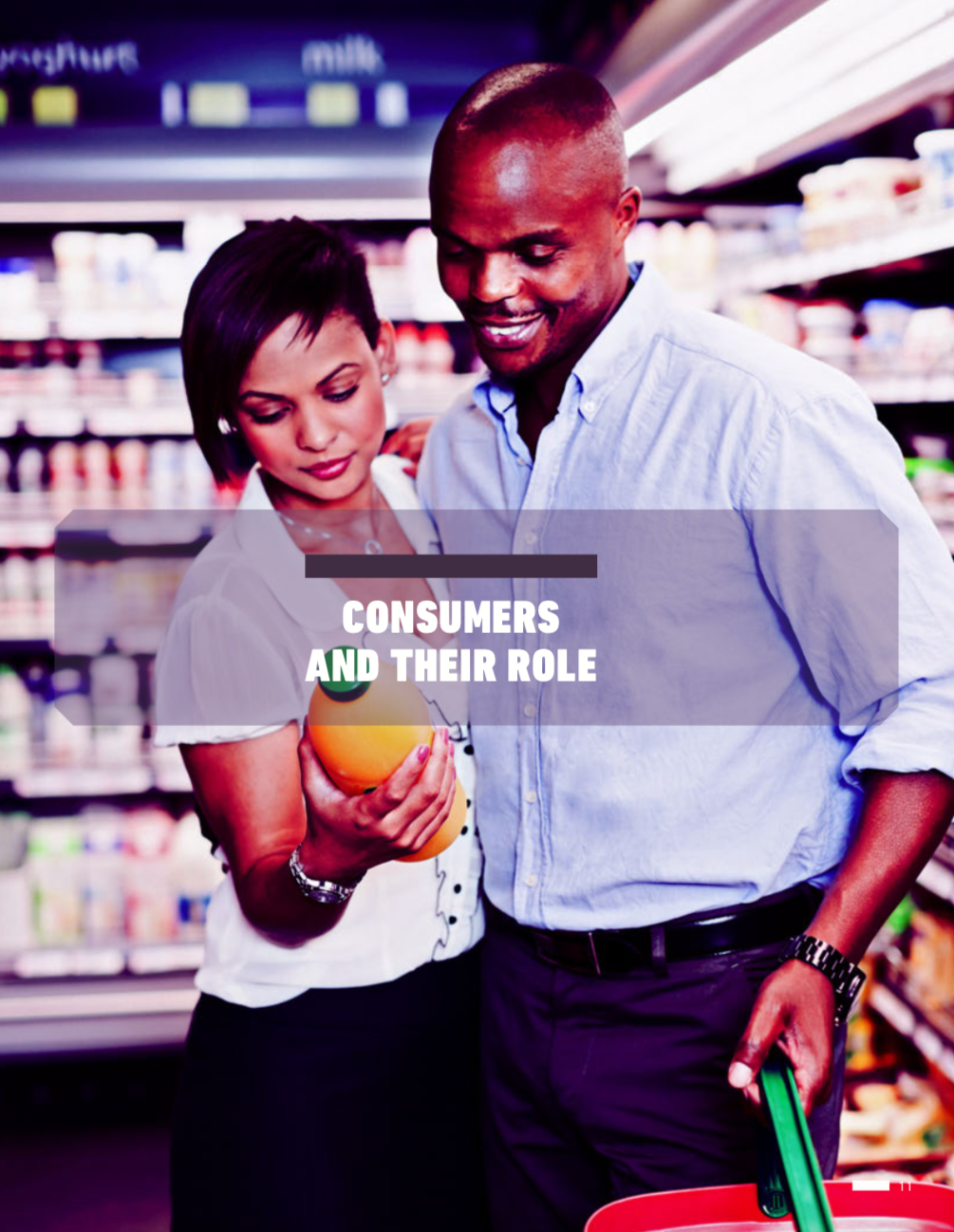

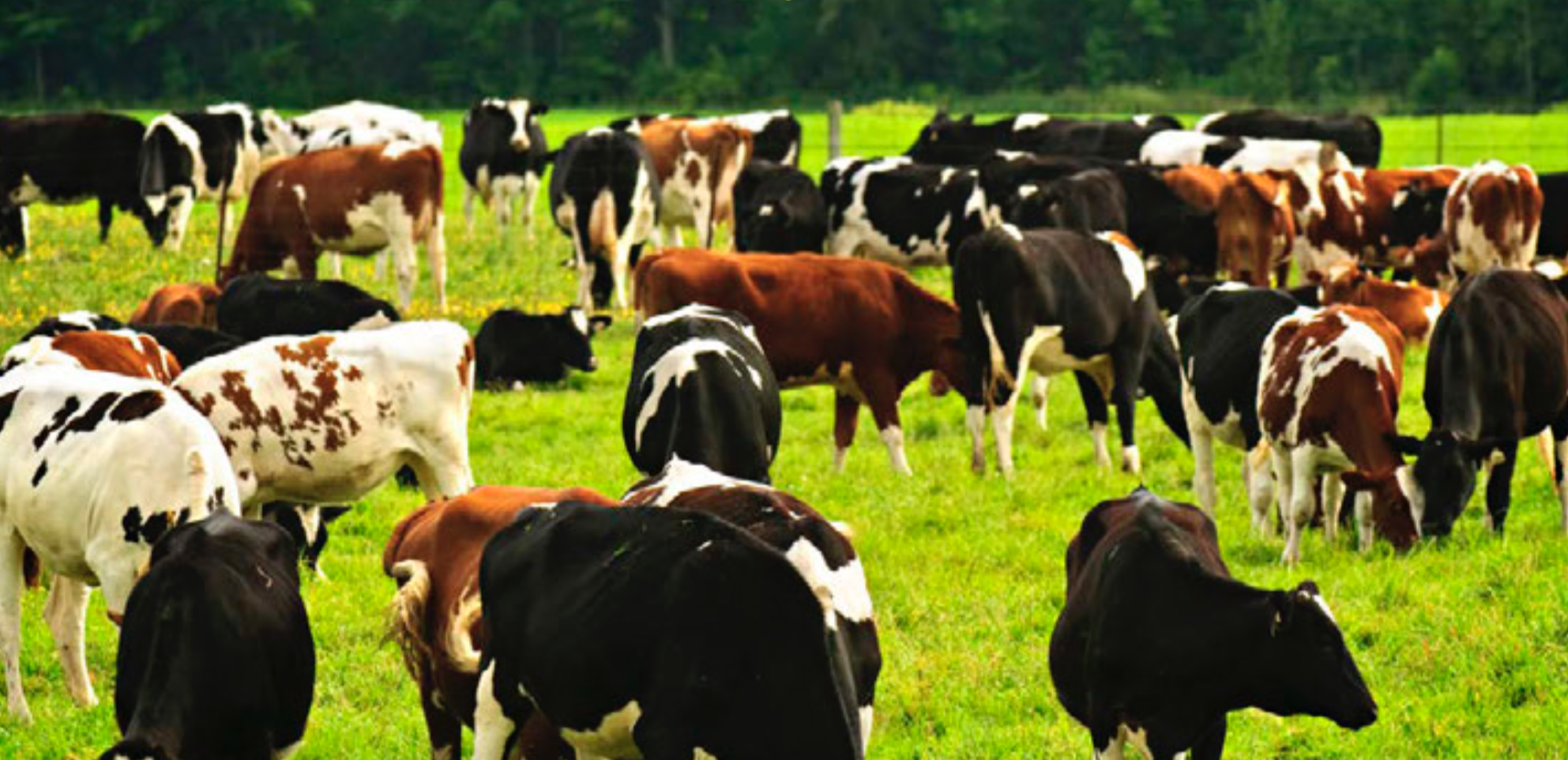
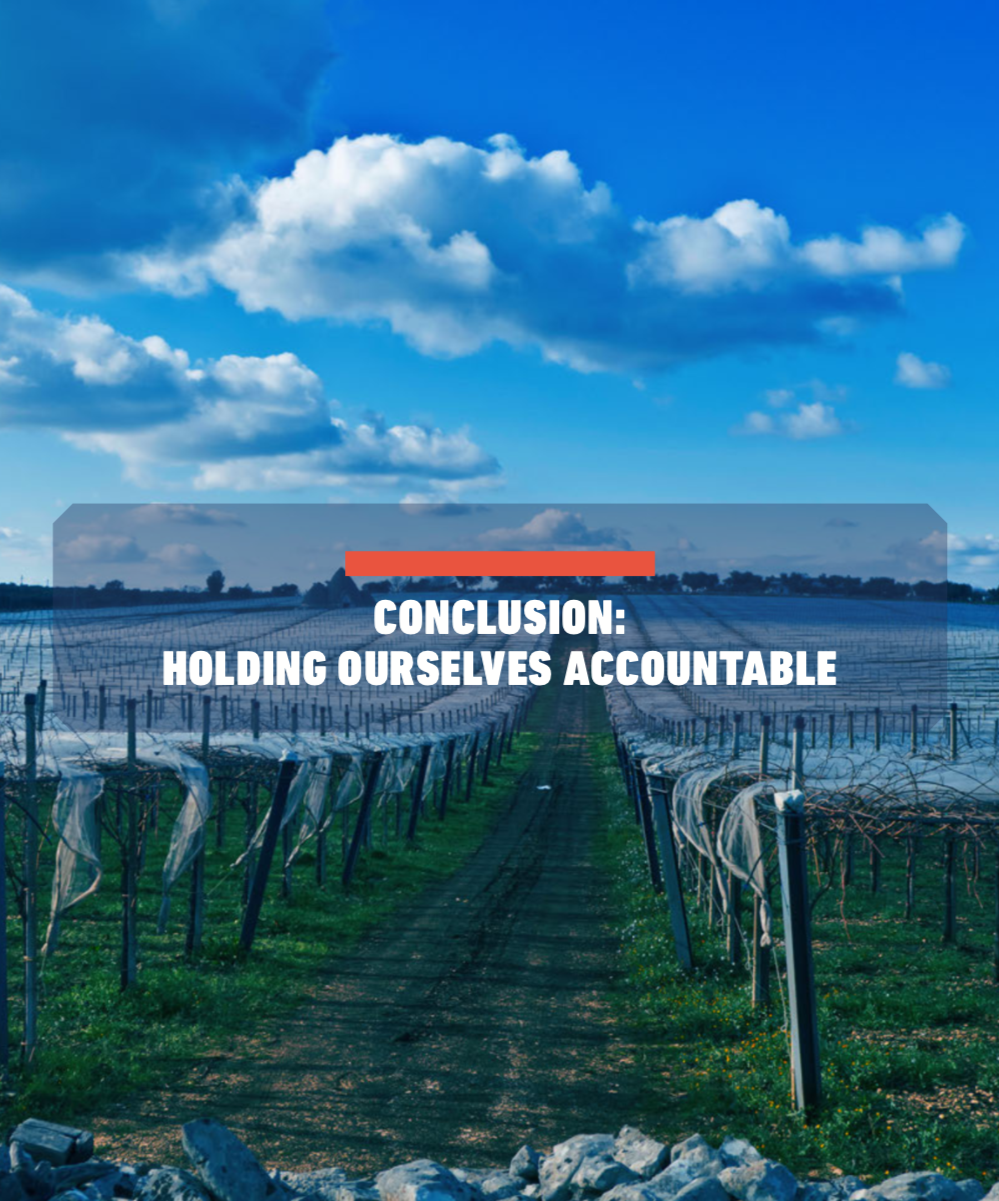
You cannot effectively run any company without sustainability standards these days. A company’s strategy should reflect its values, customer expectations, and a point of view on where the environment is going. But for food companies, the issue is even more critical. This year’s survey and subject matter experts agree: People want to do business with organizations that do well by doing good. Socially responsible organizations are role models, and they are in the right position to attract the best customers and talent.
This year’s GHJ Food and Beverage Survey asked a cross-section of food industry executives about their views on social responsibility and sustainability. In our industry, social responsibility is clearly perceived as an important value, with 77 percent of our survey respondents reporting that they have changed or added products based on consumer sustainability concerns.
Today many consumers are passionate about their health, and it is none too soon. As a nation, the U.S. has become progressively less healthy, and the food and beverage industry has been a major contributor. From high-fructose corn syrup to highly refined carbohydrates, the U.S. has literally made itself sick. Consumers have woken up, however, and are creating major change in the industry. Food and beverage companies that want to keep growing and serving their customers are listening to their customers.
Food and beverage companies looking to reduce their supply chain’s impact on the environment are turning to locally sourced ingredients that take just a short drive to deliver, save the fuel, and reduce the carbon footprint.
Parts of the food and beverage industry have been harmful to the environment for many years. Feeding the planet is a primary concern, of course, but as better and faster production methods emerge, there is a real opportunity to focus on doing what is right for everyone. Much has been said about global warming in recent years as politics has sometimes attempted to negate science. The truth is that climate-related threats to global food production include risks to grain, vegetable, fruit crops, livestock, and fisheries.
The best food and beverage companies have values around doing what is right for the Earth. They incorporate this into a value proposition that serves as a True North for their company, their people, and the industry. Sustainability is mainstream, and it is here to stay.










